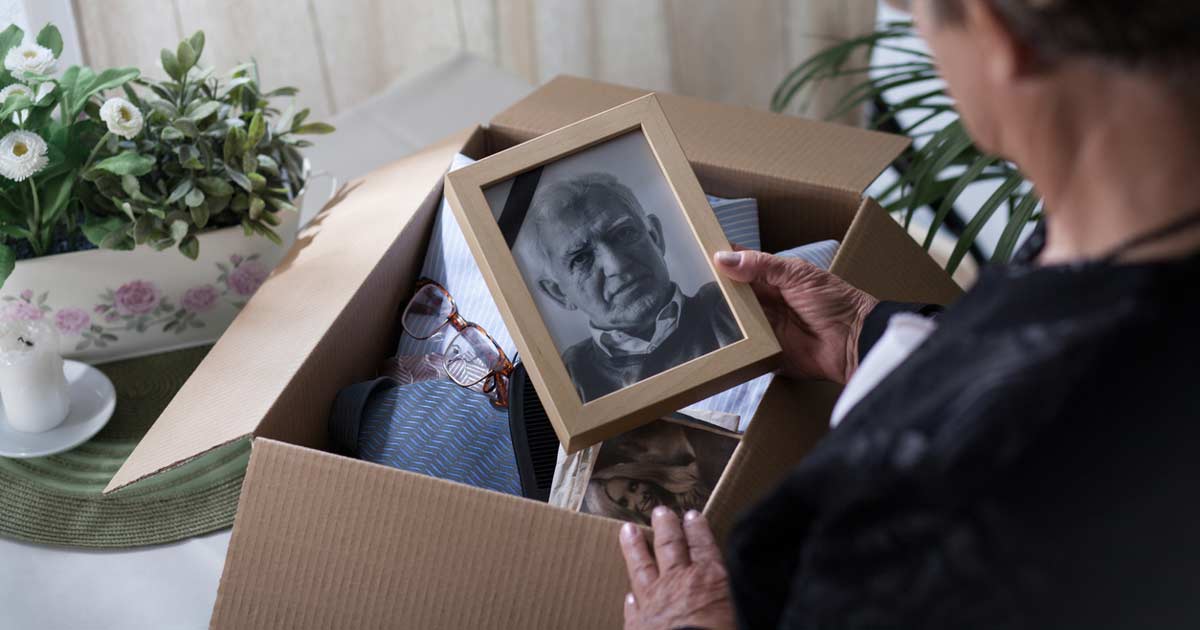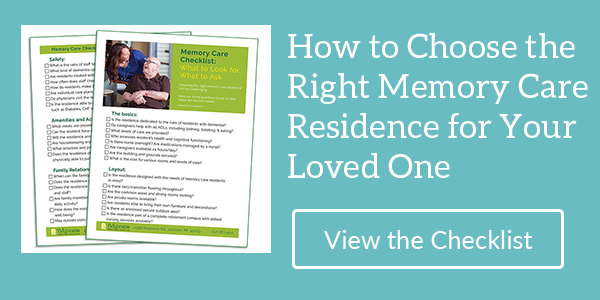Memories are precious at any age, but for seniors, memories are priceless. So, when Alzheimer’s is diagnosed, the first thing many people worry about is the loss of their memory, and thus their past. Family, friends, hobbies, events, and other memories begin to fade, stripping away the aspects of life that make each person unique. But there are ways to counter memory loss and help loved ones retain their sense of self, starting with making a memory box.
What is an Alzheimer’s memory box?
A memory box is exactly what it sounds like; a box full of memories in the form of photos, keepsakes, letters, cards, and anything else that can elicit memories of times past. For example, maybe grandpa was a baseball card collector or grandma kept mementos like corsages or wedding ceremony programs. Anything that can help them recall events, feelings and good times can be included.
For those with too many choices, it might be easier to scale it down by setting a theme for a memory box. Ideas include kids and grandkids, summertime, trips taken, or holidays. There are few bad ideas or limits to what a memory box can contain. Items can also be swapped out for new ones over time to keep refreshing the memories.
One of the most important things to do when creating a memory box is to do it with the loved one so they can not only enjoy choosing what goes in, but the company and conversation as well. Although the communication skills of those with Alzheimer’s disease tend to decline over time, talking about each memory box item can bring memories to the forefront. Asking questions and providing forgotten details about each memory helps engage and encourage Alzheimer’s patients to share their own recollections.
There are also a few things to keep in mind when creating a memory box for a person with Alzheimer’s disease. Because the memory box articles will be touched and held often, it might be best to leave out very fragile or valuable mementos. These can be kept separately and shared often under supervision. Also important are objects that could be dangerous like articles with pins or sharp edges or things that could break if dropped.
For more about creating the perfect memory box, check out the alzheimers.net blog, “5 Reasons to Make a Memory Box for Alzheimer’s.”
Listen to music
Music and memory have a special relationship. According to musicandmemory.com, “music can awaken the brain and with it, the rich trove of memories that are associated with familiar songs or beloved pieces.”
In fact, most of us have experienced that wonderful connection when we hear a favorite song and instantly recall the lyrics and the memories associated with it, even if it’s from decades ago. For Alzheimer’s patients, music can be a gentle but powerful way to reach the past and enjoy memories that seemed long gone.
Recently, research has shown that music can also reduce anxiety in Alzheimer’s patients when it is music they enjoy and does not overstimulate or elicit a negative reaction. Listening to music with a loved one also provides a great way to share time together and enjoy a sing along together.
Read more about the positive influence of music on the brain in the alzheimer’s.net blog, “5 Reasons Why Music Boosts Brain Activity.”
Art therapy for Alzheimer’s
Another promising memory booster is art therapy. Even as Alzheimer’s strikes communication skills like speaking, Alzheimer’s patients have shown a remarkable ability to express themselves through art.
The AARP article, “The Beauty of Art Therapy,” looks at how art therapy is helping people with dementia, giving them an outlet for memories and feelings by creating beautiful works of art often associated with past memories.
The theory is, according to the article, that as verbal communication slows, the visual side of the brain is essentially unleashed to allow creativity to flourish. Through organized art therapy, like the Alzheimer’s Association’s national Memories in the Making® program, even inexperienced artists can engage, be productive and feel proud of their work. Learn more about how art therapy is helping Alzheimer’s patients lead more fulfilling lives in the artsy.net article, “For Alzheimer’s Patients, Art’s Therapeutic Effects Are Transformative.”
Ganton’s Countryside offers Assisted Memory Care and strives to help each patient live the fullest and happiest of lives. For more information about Countryside, please call Margaret Nagel at (517) 206-5000 or download our brochure to learn about our care levels, cost, and amenities.


